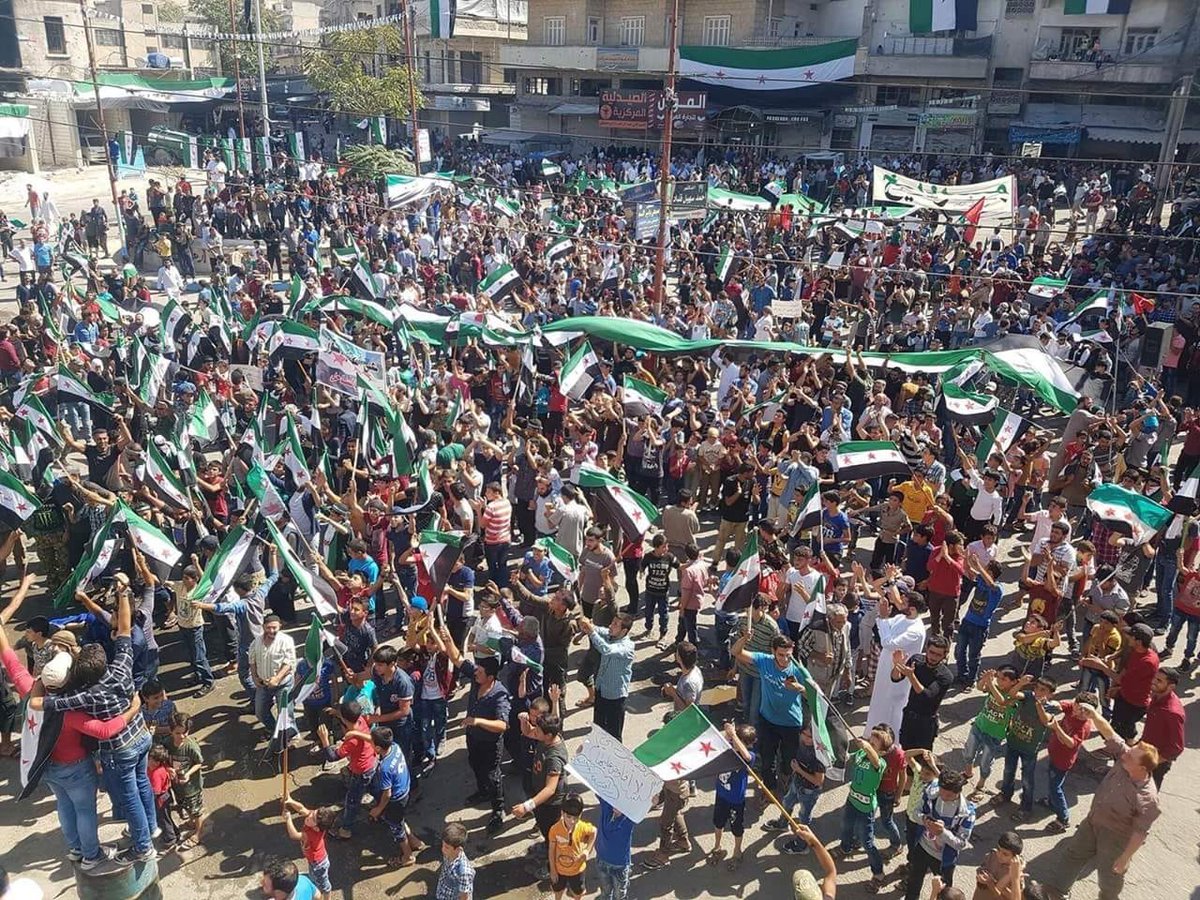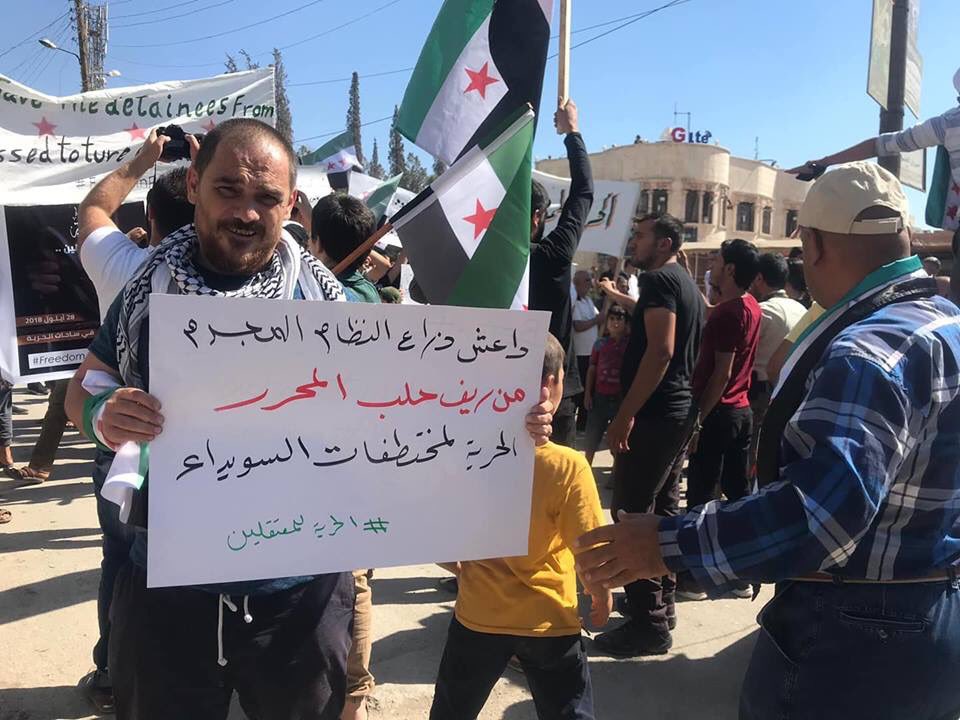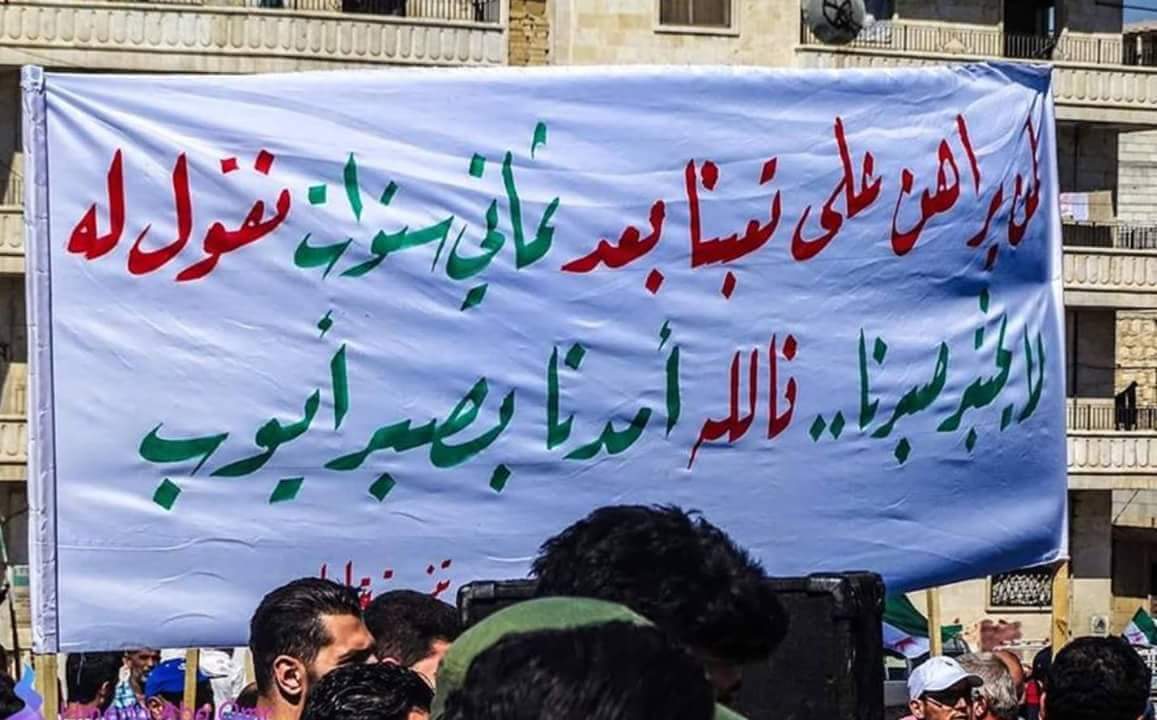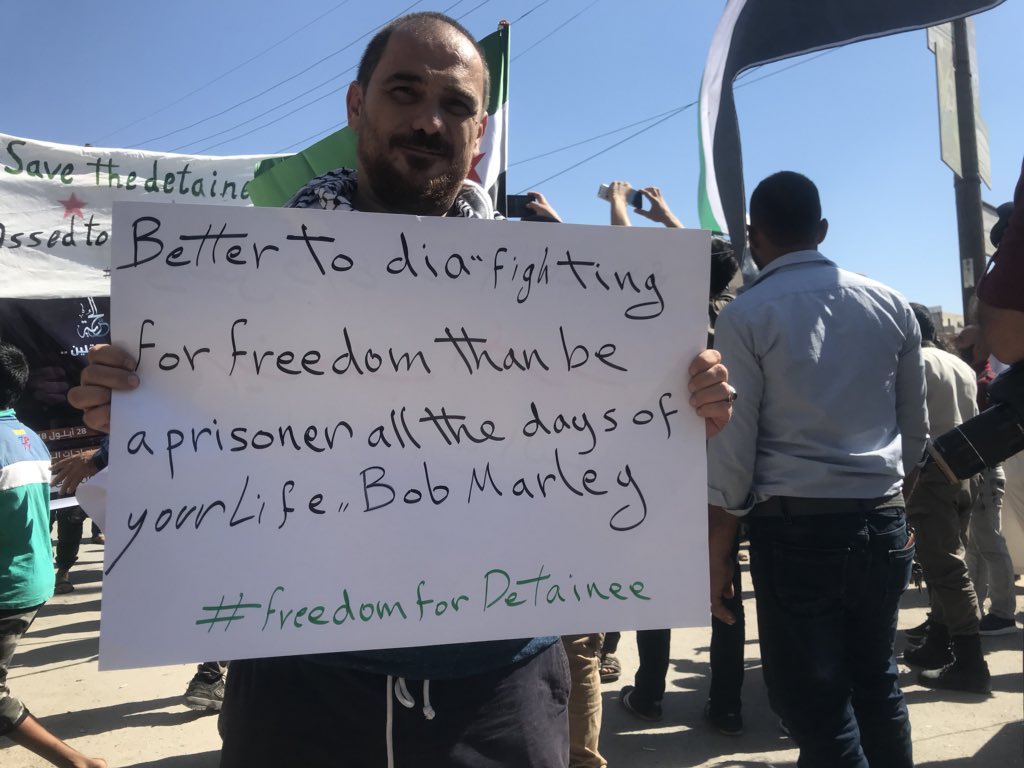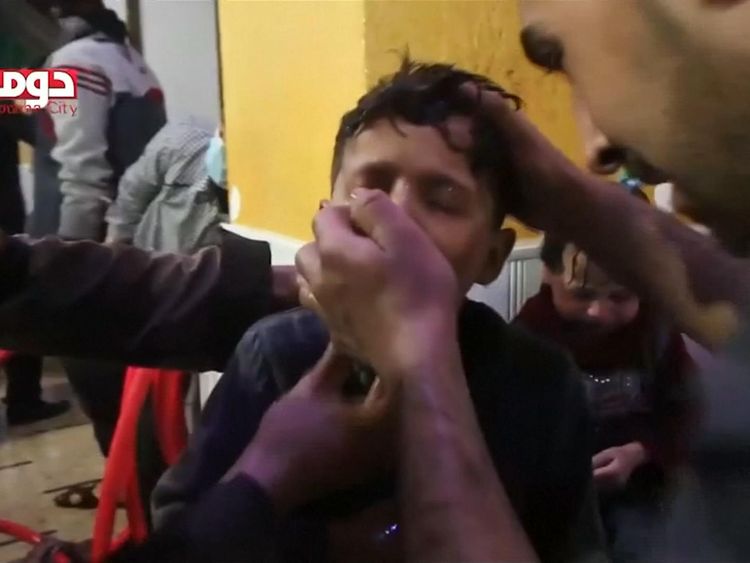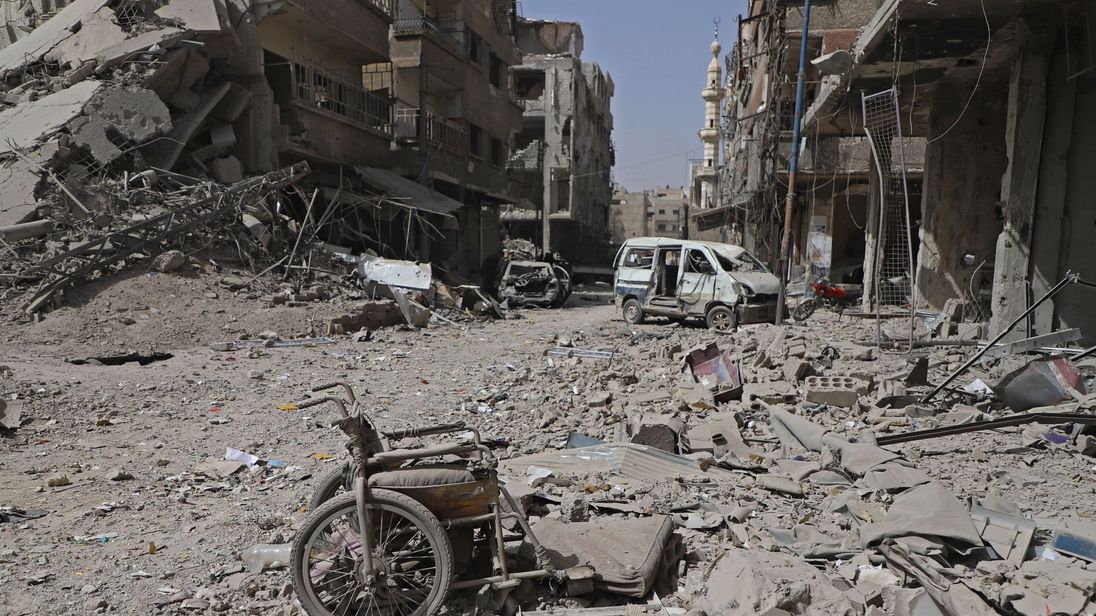
'The doors of fear and hope have revolved again. For weeks, Dr Mahmoud would rush his daughters into the basement at night, or tuck them in a corner in the lavatory, improvised shelters against the impact of airstrikes by the Syrian government and its Russian allies.
That is, if he was at home. For the future, his plan was to hire a smuggler and move them to Turkey.
It would cost him between $500 and $2,500 each to transport them illegally across the border. The lower the rate, the bigger the risk of being shot at by the Turkish police. He had heard of some seasoned smugglers who had mapped out the few unmanned crevices on the sealed frontier and, unlike most civilians in northern Syria, he could afford the expense. As a cardiologist, he had managed to save some money.
He knew he himself would stay back in Idlib. There is a shortage of doctors and he intended to stick by the people, helping them endure the attack, were it to take place.
For now, though, he and his children are breathing more freely, and the evacuation plan is postponed. An unexpected deal between Russia and Turkey last week may have averted the catastrophe he feared: a full-blown invasion of his home in Idlib, Syria’s last rebel province. Nothing is certain and agreements have been made and broken with monotonous regularity in the past.
But Dr Mahmoud – a pseudonym, for fear of future reprisals – is happy for now. “I think it’s a good deal,” he said.
The agreement calls for a 15-20km demilitarised zone to be set up by mid-October, which will act as a buffer between the forces of the Syrian government and the rebels. Until then at least, a military offensive has been halted.
Dr Mahmoud’s first feeling was relief. He had other feelings too – the rush of a tiny victory, the joy of being alive another day, a diminishing hope leaping and suffusing his heart with promise because the revolution hadn’t yet died. However, the sense that his family would not be bombed that night came before all of that. “My first priority was to save my family,” he told me.
Then there was suspicion. Would the deal work? Or was it a ploy by the Russians to appear sympathetic to the humanitarian cause, that would lead eventually to a resumption of the bombing?
“We are people, just like you,” he told me in an attempt to counter the narrative of the Syrian government that Idlib is entirely inhabited by Islamists and jihadists.
The last remaining rebel stronghold, Idlib is dominantly in the grip of a jihadist outfit now known as Hayat Tahrir al-Sham or the HTS, infamous for its al Qaeda links. Yet their estimated numbers – 10,000 fighters in all, according to the UN – are a mere fraction of the people residing in Idlib.
Dr Mahmoud, a practising Muslim, admits the province leans towards the conservative, but he insists that does not make him an extremist. The people of Idlib, he says, including him, back the relatively moderate Free Syrian Army, now rebranded as the National Liberation Front, and not the jihadists of HTS.
“Most people want the Free Syrian Army, they don’t like the HTS,” he said. “We don’t want to be ruled by them because we want democracy and they have deviated from the path of the revolution.”
Yet digging a little deeper reveals a relationship riddled with complexities. Whilst Dr Mahmoud doesn’t wish to replace the dogma of the Baath party with the hardline ideology of the HTS, he finds them useful in fighting the régime.
“They are certainly better than Assad. We don’t dislike them as much because they are also fighting the régime,” he says. He draws a distinction between the group’s leadership and its foreign fighters, and the foot soldiers, who are mainly ordinary Syrian boys and hence by and large trusted.
What civilians like Dr Mahmoud think about the HTS is crucial because the future of the Russia-Turkey deal hinges on the HTS backing off from the demilitarised zone and giving up its weapons.
Dr Mahmoud says that if HTS shows reluctance to co-operate and move out of the buffer zone and Russia consequently uses it as an excuse to attack Idlib – as is feared – the people of Idlib will also hold the group responsible for squandering a shot at peace.
“Turkey will make the HTS co-operate and if they don’t, all Syrians will blame the HTS. I think they will respond,” says Dr. Mahmoud.
A few days before the deal came about, I had spoken via a translator to an HTS commander who goes under the nom de guerre Abu Abd al-Rahman. “We are not at odds with the National Liberation Front when it comes to knowing who the real threat to our revolution is, and that is what matters right now,” he said. “Whatever our differences may be, I believe we are capable of setting them aside. This does not mean, however, that either of us should merge with the other."
The relationship between HTS and the National Front for Liberation (NLF) – which is a conglomeration of several rebel groups backed by Turkey including the Free Syrian Army – is now key to the deal’s implementation. HTS's demand for co-operation – subordination is what the NLF fears the jihadists mean – but no merger makes NLF leaders certain that some sort of clash is coming. The deal makes it more likely.
I first met Faras al-Bayush two years ago. He was a leader with the then Free Syrian Army based in Iskenderun in Turkey and we have stayed in contact. Now he says that a fight with HTS is inevitable. “It is a matter of time,” he said.
General Haitham Afisi, another senior leader of the FSA who collaborated with the US during the early stages of the war, and is currently the NLF chief of staff of the rebel armed forces, says HTS is a bigger threat to the revolution than even the régime. General Afisi’s son was kidnapped and tortured by the group and held in captivity for two years.
“They consider us infidels, as ‘Murtadeen’: Muslims who are not practicing Islam,” he told me over a secure messaging app. “But our Islam is an Islam of love and forgiveness and we want elections, we want democracy. There is no doubt over us fighting them.”
If Idlib falls to the Assad régime and the worst comes true, Dr Mahmoud will prefer to live in Turkey or Turkey-controlled areas east of Euphrates, should he survive.
However, so long as the deal exists, it means that for now the revolution is not yet at its end, giving him room to dream. One day, when there are free and fair elections in Syria, he says he will revisit Aleppo and take his daughters to see the citadel and the old city.
Not everywhere, though; there are places which will remind him forever of the deaths and mangled remains of the dead, children included. These are the places he never wants to visit, that he never wants to be in again, not even in his dreams.'
